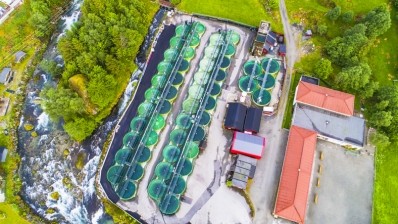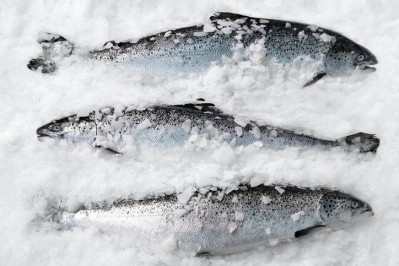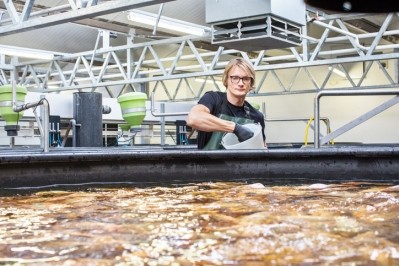US aquaculture ruling may not alter interest in RAS production

Judge Jane Milazzo in the US District Court for the Eastern District of Louisiana ruled last week that a regulatory system adopted by the National Marine Fisheries Service (NMFS), part of the National Oceanic and Atmospheric Administration (NOAA), establishing a process to permit aquaculture in the Gulf of Mexico Exclusive Economic Zone was invalid.
The ruling hinged on the understanding that NMFS did not have the regulatory authority to make the aquaculture regulations, said the judge in the ruling.
“The NMFS acted outside of its statutory authority in shoehorning an entire regulatory scheme into a single unambiguous word,” she said in the ruling. “Because this Court is obligated under the APA to ‘hold unlawful and set aside agency action, findings, and conclusions . . . in excess of statutory . . . authority,’ the regulations are vacated.”
NOAA is currently deciding whether it will appeal the decision, a spokesperson for the agency told us. “Given conflicting court decisions and the desire for regulatory certainty, NOAA supports congressional efforts to clarify the agency’s statutory authority to regulate aquaculture,” she added.
“NOAA remains committed to expanding the social, environmental, and economic benefits of sustainable marine aquaculture in the US,” the spokesperson said. However, she added, the ruling is not a “prohibition” on marine-based aquaculture and the agency is committed to continuing its efforts to expand aquaculture permitting.
Although the ruling is considered a win for several food safety, aquaculture and fishery organizations, including the Recirculating Farms Coalition (RFC), it still may not prompt additional interest in land-based or use of recirculating aquaculture systems (RAS), said Marianne Cufone, executive director with RFC and local counsel on the case.
Lawsuit overview and ruling details
A group of food safety and aquaculture organizations, including the Center for Food Safety, RFC and Food and Water Watch, along with members of the fishing industry, including the Gulf Fishermen’s Association, brought the case in 2016.
In the lawsuit, the groups asked for the court to “vacate the regulations” because they were “facially invalid” and fell outside of the authority granted NMFS through the Magnuson-Stevens Fishery Conservation and Management Act (MSA), according to court documents. That act was established initially to manage and conserve national fishery resources.
Eight regional fishery management councils were established to create fishery management plans aimed at conservation and management for the fisheries in their regions, according to court documents. “The Gulf Council is one such regional council, with authority to manage fisheries in the federal waters of the Gulf of Mexico off the coasts of Texas, Louisiana, Mississippi, Alabama, and Florida.”
In January 2016, NMFS along with the Gulf Council established regulations allowing for a commercial aquaculture permit process in federal waters and treating farmed fish as a fishery unit, according to court documents.
The challenge to that action was that the regulations created were outside of the NMFS’s authority, according to court documents. The MSA pertains to fishing, not aquaculture.
“In analyzing the plain text, statutory scheme, and legislative history of the MSA, this Court finds that the term ‘harvesting’ was intended to refer to the traditional fishing of wild fish,” the judge said in the ruling. “There is nothing in the MSA or its legislative history to suggest that Congress might have intended that the term be defined to include the farming of fish.”
If Congress had planned to give NMFS the ability to regulate aquaculture operations, they would have added language to that effect, according to the ruling.
There were additional complaints about the process used and regarding oversight of potential facilities, however, the court did not address those elements in its ruling. “Because this court ultimately finds that the NMFS was without authority under the MSA to promulgate the regulations, it need not address plaintiffs’ other arguments,” the judge added in the ruling.
RAS and feed questions
The RFC was established, in part, to provide an alternative to marine-based aquaculture, said Cufone. Producers interested in recirculating aquaculture follow a different set of regulations generally set by the US Department of Agriculture.
“The organization came about as an alternative to open water finfish aquaculture – it wasn’t about bolstering our organization or industry, it was sort of the other way around it was sort of preventing open water aquaculture,” she said of the lawsuit. “Do I think it’s going to give recirculating aquaculture a boost? Probably not, because they’re fundamentally different.”
“People who wanted to do open water probably don’t want to do closed-loop, inland aquaculture and people who like to do closed-loop inland aquaculture probably didn’t have that much interest in offshore aquaculture – I’m not sure it impacts the organization or our farmers much,” she added.
However, she said, the outcome of the lawsuit prevents what the RFC considers an “outdated industry.” The organization has concerns about the potential for environmental effects from open-water aquaculture and about the nature of the feed used in those operations.
“We have concerns about what gets fed to farmed fish as fish farmers ourselves,” said Cufone. “It’s not just about environmental impacts, which we care very much about, we’re an organization pushing for sustainable food and pushing for fair food.”
One concern about the feed used is the inclusion of wild-caught fish in the diets of farmed fish, she said.
“A lot of people who we work with either grow their own small fish if they want to live feed fish to feed their farmed fish – or they use alternative feeds,” she said. “We use worms, we’ve used duckweed, we’ve used algae, we’ve used black soldier fly larvae … to feed farmed fish and get away from feeding fish wild-caught fish.”
“There are a lot of opportunities for advancement in feed and particularly to get away from catching wild fish to feed farmed fish,” she added.












